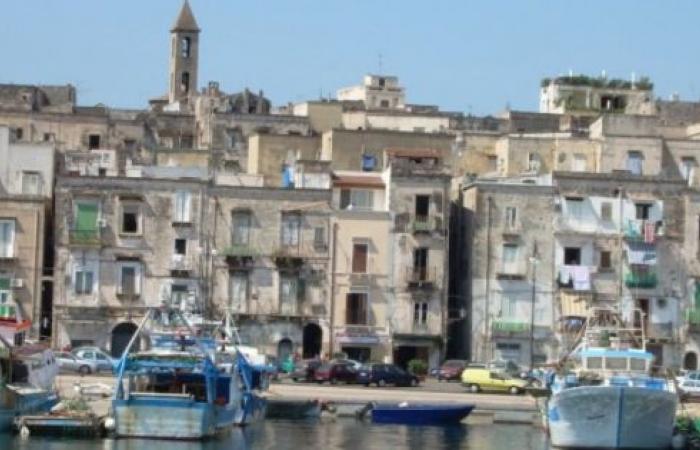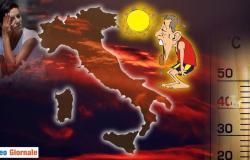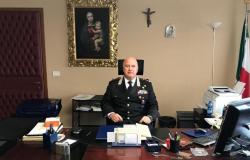The courageous article by director Mimmo Mazza, about the almost inevitable and unfortunate fate of Taranto’s steel industry and, conversely, his bitter reflection on a city that has never been industrial, even though for decades it has been credited with the narrative of the most industrialized city in the South, reminded me of the “liar’s paradox”. Which is the oldest known paradox, as it dates back to the 4th century BC. And it was formulated, of course, by a Greek philosopher, Eubulides of Miletus, much admired in antiquity, so much so that Diogenes Laertius took care to write down the seven most well-known paradoxes so that they would never be forgotten. But let’s go back to Eubulides and his famous phrase: “What I say is false”.
This is, linguists and rationalists have explained to us, a self-negating preposition, in the sense that if what he affirms is true, then he is saying something true, while he affirms that he is lying. If, in fact, the sentence is false, then he is lying when he says that he is lying, since he is telling the truth.
Now in these last decades, the Taranto people of “liar paradoxes” have heard an infinite number of them. The latest of which (but only in chronological order) is that the city, once the European capital of steel, which is denied even a decent railway station, with relative connections to the North, will be projected, with the nearby Grottaglie airport, at the center of space flights. Maybe in the next millennium. While currently, that airport, for precise political will, is denied to passenger flights. That finally, the protection of work, cannot ignore the protection of that health, which we have seen dramatically compromised by mephitic fumes and the release of toxic substances into the air. And, with these paradoxes, I could continue. With the construction of Olympic swimming pools for the next Mediterranean Games, of sports villages, of effective projects for the decontamination of Mar Piccolo and the coastal strip (even if in the latter case, those responsible seem to have much higher caliber), of the redevelopment of the Tamburi, Paolo VI and Salinella neighborhoods, while there is talk again of the re-perimetering of the hinterland, of the Taranto countryside in short, with the so-called Comparto 32, which may be futuristic but which foresees further pouring of concrete, and the erosion of hectares of countryside.
What is to be done, then? In this regard, I like to recall Nikolaj Chernysevskij’s “What is to be done” and the possibility that social redemption can start from the bottom, from the middle class, from the working class who can finally be promised a job, perhaps in the cleanup of the damage done by the steel industry, from the girls and boys who did not want to leave their city, or who returned after studies and experiences in other cities. And these young people are not pessimists. They join together in cooperatives, they join together and, in fact, they prevent the heart of Taranto from stopping.
They would just like more reliable points of reference. A less jumpy and inconclusive policy, and, above all, a management of public affairs that does not descend into the most vulgar familism or the most blatant clientelism, leaving merit and professionalism outside the door. Therefore, let Feltrinelli, with its books and its new audiovisual media, make itself comfortable and welcome in the good living room of Taranto; it will be an enrichment for the city that has seen, with melancholy, its historic bookshops close one by one. Leone, Filippi, Nicola Mandese and many others, which, taken as we have been by the vicissitudes of steel, we have not mourned enough as, instead, we would have liked. And enough, for once, with the contemptuous comments on a hypothetical tourist city, or on the richness of its sea crops. Why not consider that these sectors are also driving forces, together with an industry that no longer sows deaths and invalids. And finally, let’s not let the proposal of illustrious Tarantini, Francesco D’Andria, Emanuele Greco, Grazia Semeraro, etc., to try to recover for public use what will be found of the remains of the Roman amphitheater and even the Greek one, without major urban upheavals and unlikely demolitions, fall on deaf ears. In this regard, we have so far listened to an annoying policy of “whataboutism”, that, when we talk about the amphitheater, we begin to reel off other alleged priorities, such as the Collepasso park, other ancient walls or other unlikely archaeological evidence.
Finally, it seems to us that after the season of supporting actors, even the trade associations, the Chamber of Commerce, Confcommercio, and even the Industrialists’ Association (for many years, subservient to the steel giant), are governed admirably and, what is more, with new assonances with the territory and its projects. Let’s browse, therefore, new books, but let’s not forget to write ourselves, a new and extraordinary one.






